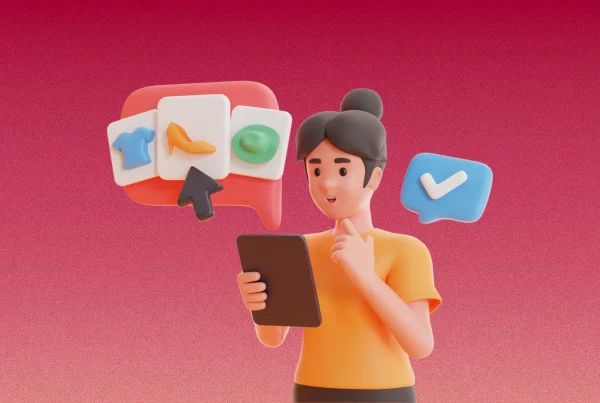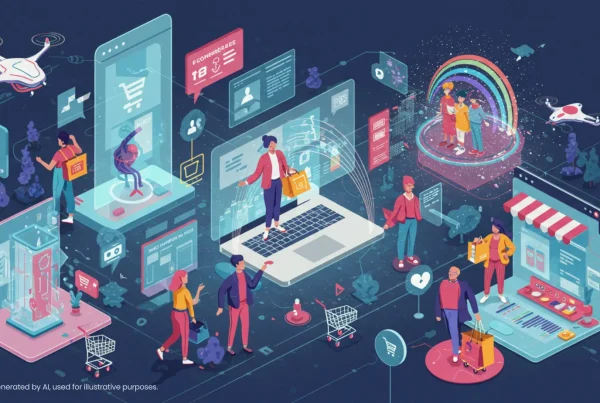
Marketing has changed big time in this digital world, and hence businesses need to reconsider the way they communicate with customers. The debate of multichannel vs omnichannel marketing gets so timely in this situation. Amidst the rising expectations of customers, selecting an apt strategy is something more significant than ever.
Understanding the Difference
Multichannel Marketing: Uses multiple independent channels (e.g., social media, email, physical stores, websites) to reach customers. Each channel operates separately without integration.
Omnichannel Marketing: Provides a seamless and connected customer experience across all channels. Every platform is integrated, ensuring customers can switch between them effortlessly.
In simple words, multichannel marketing refers to how a business reaches out to customers. Meanwhile, omnichannel marketing refers to how customers interact with a business across different channels.
Why This Matters Today?
Consumers usually use multiple touchpoints before buying something. For instance, McKinsey’s studies note that luxury shoppers average nine touchpoints before purchasing, with variations across different markets.
If the company does not integrate such touchpoints, it is more likely to lose customers.
Businesses with strong omnichannel strategies retain 89% of their customers, according to Harvard Business Review research, while those with weak strategies retain only 33%.
Pros and Cons of Multichannel Marketing
✔️ Wider reach: Brands can be on many platforms, thus gaining more visibility.
✔️ Flexibility: The ability to craft channels for specific audiences.
❌ Inconsistent experience: Due to the different messaging that customers get across channels.
❌ Lack of integration: Data is usually siloed, and true personalization is hardly possible.
Pros and Cons of Omnichannel Marketing
✔️ Seamless experience: Customers enjoy a continuous journey across platforms.
✔️ Better engagement & loyalty: Personalization leads to stronger connections with customers.
❌ Complex implementation: Advanced technology and data integration are required.
❌ Higher cost: It can be quite expensive to invest in both technology and training.
Multichannel Vs. Omnichannel Example: How Brands Are Adapting?
Multichannel
A bookstore runs separate promotions across these three channels:
- Email: Send out weekly newsletters with discounts on specific genres.
- Facebook Ads: Runs paid ads targeting users based on their browsing history, promoting bestsellers and trending books.
- Physical Store: In-store displays feature promotions like “Buy One, Get One Free” or “10% off” for certain titles.
Omnichannel
A customer went through different touchpoints before purchasing a product. Here is how it goes:
- First, the customer browses a product on an app and adds items to their wishlist or cart.
- Later, they receive a personalized email reminder about the product they just viewed. Along with it, there is a special promotion or discount for the item.
- They also receive an email with the same discount offer. This drives urgency to complete the purchase.
- The customer views the products that they saw last time on the brand’s website with the discount code automatically applied as it’s already in their cart.
- The customer finally completes their purchase on the website with the discount code.
- After the purchase is confirmed, the customer receives loyalty points automatically credited to their account. These points or rewards can be used for future purchases.
Which One Should You Choose?
Multichannel marketing is a good starting point for small businesses because it is easy to use. Once the business has grown enough to handle more complexity, it can take a step toward omnichannel for a long-term focus on customer experience, brand loyalty, and business growth.
For customer-centric brands, omnichannel marketing is the basis for long-term growth and loyalty. For fast-scaling businesses, investing in omnichannel provides consistency and data-driven insights.
Closing Remarks
Today, the customer is looking for fluidity and connectedness in his experiences. Multichannel vs omnichannel marketing-both have their merits, but they should be selected based on your business goals and resources.
If customer experience is of prime importance, then omnichannel is the way ahead. But if the focus is on reach with limited resources, multichannel can still work as a great strategy.
The key takeaway? Marketing isn’t just about being on multiple platforms; it’s about meaningful connections that drive loyalty and revenue.













